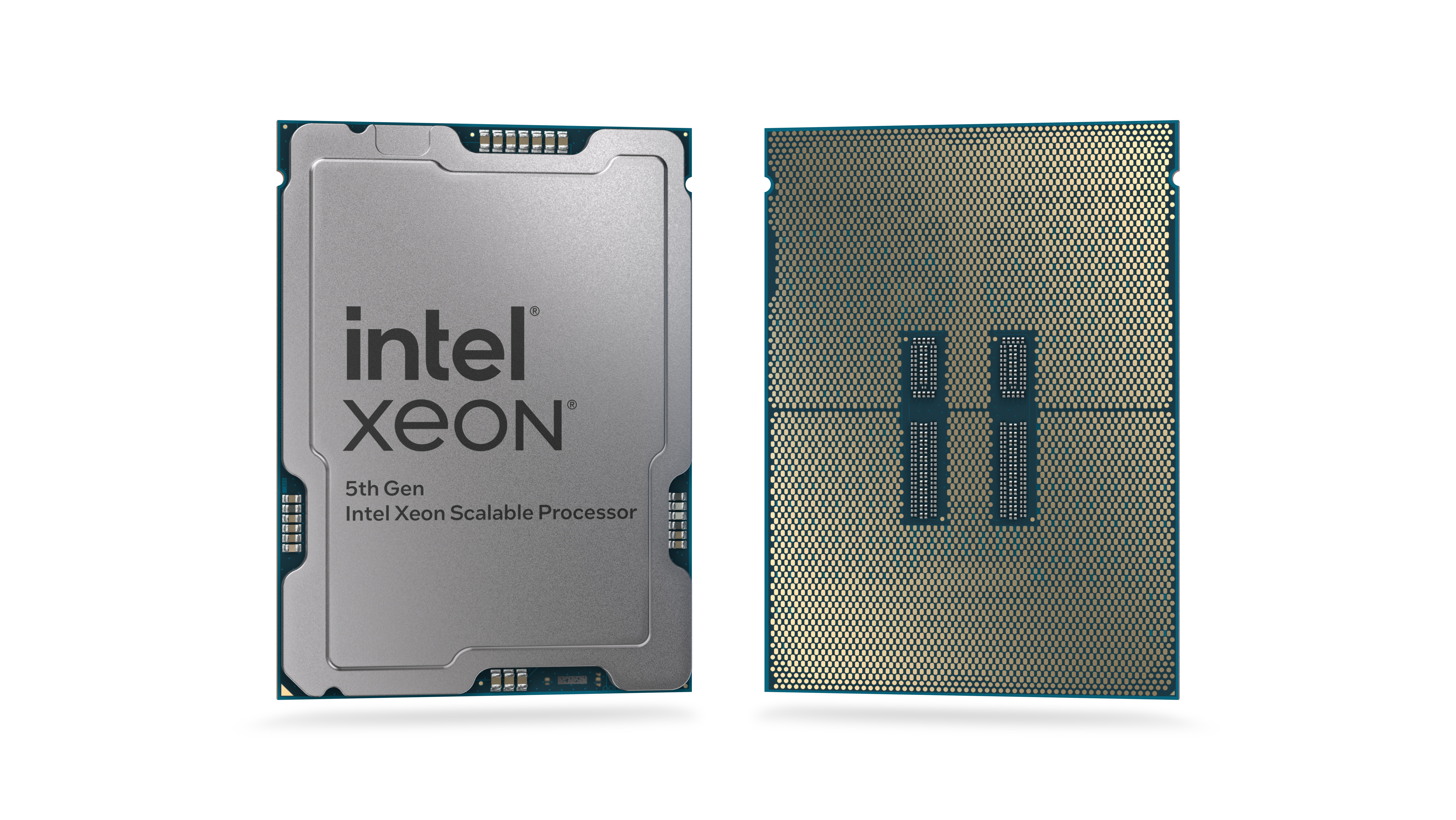

Intel debuts AI-accelerated Core Ultra and 5th Gen Xeon chips to enable AI to ru...
source link: https://siliconangle.com/2023/12/14/intel-debuts-ai-accelerated-core-ultra-5th-gen-xeon-chips-will-enable-ai-run-location/
Go to the source link to view the article. You can view the picture content, updated content and better typesetting reading experience. If the link is broken, please click the button below to view the snapshot at that time.

Intel debuts AI-accelerated Core Ultra and 5th Gen Xeon chips to enable AI to run in any location

Intel Corp. is doubling down on its efforts to power artificial intelligence in any location with the launch of its new Intel Core Ultra family of mobile processors, which are the first to be built on its most advanced, Intel 4 manufacturing process.
They debuted today alongside the latest generation of its traditional central processing units for laptops and servers, the 5th Gen Intel Xeon CPUs, which are said to have AI acceleration built into every core. This, the company said, means they can deliver big performance improvements for every conceivable AI workload.
The chipmaker has been talking up its vision for AI this year as it seeks to capitalize on the buzz around ChatGPT and other generative AI models that many believe have enormous potential to change the way people live and work. Intel believes it can play a key role in helping AI become mainstream, and wants to empower developers to bring the technology into every facet of our lives.
At a special event in New York dubbed “AI Everywhere,” Intel Chief Executive Pat Gelsinger showcased how the company intends to deliver on that vision with the launch of its Ultra mobile chips (pictured above) and the new Xeon CPUs. He talked about the potential of AI innovation to increase the digital economy’s impact to up to one-third of global gross domestic product.
“Intel is developing the technologies and solutions that empower customers to seamlessly integrate and effectively run AI in all their applications – in the cloud and, increasingly, locally at the PC and edge, where data is generated and used,” he said.
Intel Core Ultra chips

Michelle Johnston Holthaus, executive vice president and general manager of the Client Computing Group at Intel, holds the Intel Core Ultra mobile processor.
The new Intel Core Ultra is the chip that will enable AI to be run locally on personal computers and in edge locations. It’s said to represent the company’s biggest architectural shift in more than 40 years, with improvements in CPU compute, graphics, power and battery life, as well as its entirely new AI features.
It’s said to be the first to feature Intel’s new client on-chip AI accelerator, which is a neural processing unit or NPU that delivers 2.5 times better power efficiency for AI workloads than its earlier generation chips.
Intel said the Intel Core Ultra chips will support “several hundred AI-boosted applications” that can run locally on PCs. To do this, it has partnered with more than 100 software companies to collaborate on an array of “creative, productive and fun applications” that will transform the PC experience. As an example, content creators will benefit from 40% better performance when using Adobe Inc.’s Premiere Pro software, compared to running that program on other types of silicon.
All told, Intel Core Ultra will enable superior AI performance on more than 230 different laptops and desktop computers by next year, the company said. This could inject a new burst of life into a PC market that has been in the doldrums ever since the COVID-19 pandemic subsided, with Intel saying “AI PCs” will account for 80% of all PC sales by 2028.
Proximity and location can make a real difference in some workloads, so Intel’s approach of running AI locally may have some merit, said Constellation Research Inc. analyst Holger Mueller. “However, it’s a new approach that runs counter to the rest of the industry, where dedicated cloud-based processors rule, so it remains to be seen how much growth Intel’s Ultra chips will squeeze out of AI,” he added.
5th Gen Intel Xeon chips

As for the new generation of Xeon chips, these too are said to deliver significant performance and efficiency gains compared to the 4th Gen processors. Intel threw out lots of impressive numbers, including a 21% average performance gain for general compute, and a 36% improvement across a range of specialized customer workloads.
The 5th Gen Xeon CPUs are said to be the world’s first mainstream data center processors with built-in AI acceleration, enabling a 42% improvement in inference and AI model fine-tuning performance. They can help to fine-tune large language models of up to 20 billion parameters, the company added.
Alongside the AI accelerators, the new Xeon CPUs come with optimized software and telemetry capabilities that will enhance the performance of demanding network and edge workloads for communications service providers and content delivery networks, making them more manageable and efficient.
Throwing out more numbers, Intel said IBM Corp. used the 5th Gen Xeon CPUs to achieve 2.7 times better query performance on its watsonx data platform, while Palo Alto Networks Inc. witnessed a two-times performance boost in its AI-powered threat detection models running on Google Cloud.
According to Gelsinger, these performance increases will unlock new possibilities for more advanced AI across networks and edge applications. “Intel is on a mission to bring AI everywhere through exceptionally engineered platforms, secure solutions and support for open ecosystems,” he promised.
AI everywhere
Besides throwing out impressive numbers and claims, Intel offered some concrete, real-world examples of the kinds of AI workloads its new silicon will enable. For example, restaurants will be able to guide diners’ menu choices, based on their individual budget and dietary needs, while manufacturers will be able to build new systems that catch quality and safety issues on the factory floor. Advanced AI powered by Intel’s silicon will also lead to the creation of more effective ultrasound systems that can catch problems that a human doctor might miss.
The company says these kinds of edge AI use cases are powering one of the fastest-growing segments of a computing industry that is projected to become a $445 billion global market by the end of the decade.
To assist developers, Intel said it has optimized its new chips for popular AI frameworks such as PyTorch and TensorFlow. Developers can also access various foundational AI libraries available through Intel’s oneAPI service to ensure their AI applications are portable and can perform across different kinds of hardware.
To wrap up the event, Gelsinger offered attendees a sneak peak of the company’s next-generation silicon, called Intel Gaudi3, which is set to debut next year. Intel Gaudi3 is said to be a new kind of AI accelerator for deep learning and large-scale generative AI models that will deliver even more performance gains along with a more competitive total cost of ownership.
Photos: Intel
A message from John Furrier, co-founder of SiliconANGLE:
Your vote of support is important to us and it helps us keep the content FREE.
One click below supports our mission to provide free, deep, and relevant content.
Join our community on YouTube
Join the community that includes more than 15,000 #CubeAlumni experts, including Amazon.com CEO Andy Jassy, Dell Technologies founder and CEO Michael Dell, Intel CEO Pat Gelsinger, and many more luminaries and experts.
THANK YOU
Recommend
About Joyk
Aggregate valuable and interesting links.
Joyk means Joy of geeK